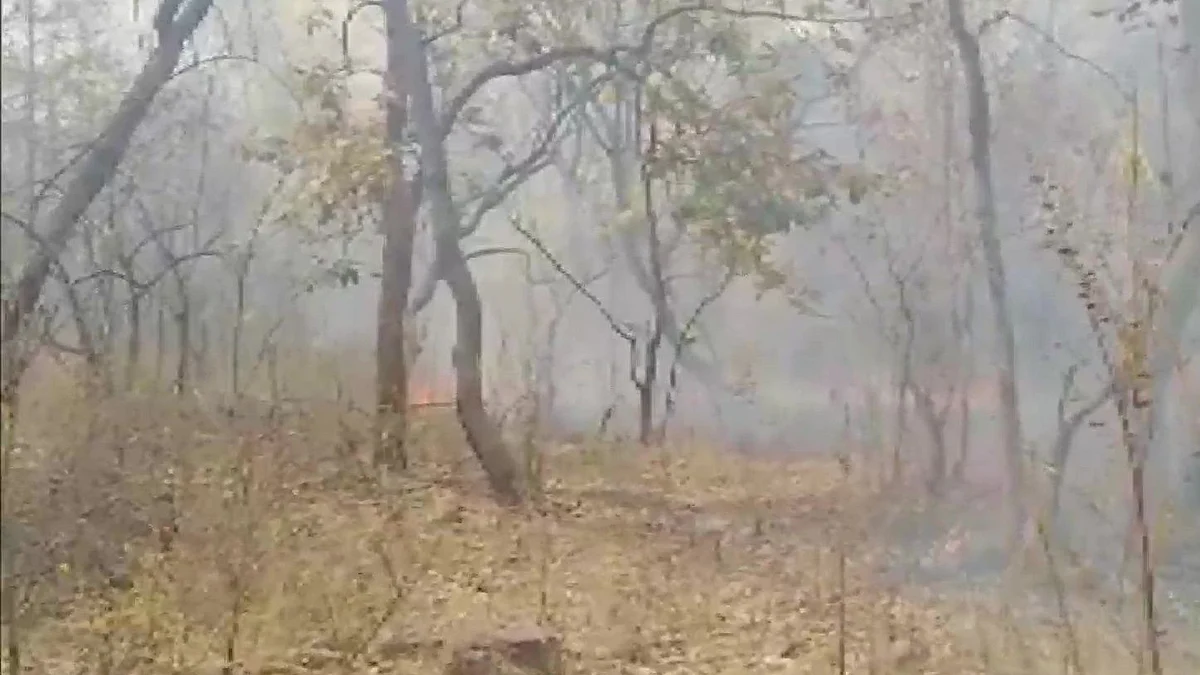Huge gaps continue in compliance with Bio-Medical Waste Management Rules, says NGT
Huge gaps continue in compliance with statutory Bio-Medical Waste Management Rules, the National Green Tribunal has observed

Huge gaps continue in compliance with statutory Bio-Medical Waste Management Rules, the National Green Tribunal has observed.
Underlining that remedial action needs to be "planned", the tribunal modified the requirements for a new Common Bio-Medical Waste Treatment Facility and said environmental training programmes were desirable for district magistrates.
A Common Bio-medical Waste Treatment and Disposal Facility treats biomedical waste generated from a member healthcare facility to reduce its adverse effects on human health and the environment. The tribunal was considering a status report by the Central Monitoring Committee of the Union Ministry of Environment, Forests and Climate Change. The ministry had formed the committee to review implementation of the Bio-Medical Waste Management Rules.
Noting that data submitted by 23 states and Union Territories, a bench of Chairperson Justice AK Goel said, "There still continue huge gaps in compliance of statutory Bio-Medical Waste Management Rules and unless duly addressed, such gaps will continue to compromise the public health and environment." The bench, also comprising Judicial Member Justice Sudhir Agarwal and Expert Member A Senthil Vel, said, "Remedial action needs to be planned and executed." "We take on record the factual position of gaps and approve the proposed monitoring framework (by the Central Pollution Control Board) which may be duly implemented," it said.
The green panel noted that according to rules, only a member healthcare facility with 1,000 beds could ensure disposal and treatment of bio-medical waste through a Common Bio-medical Waste Treatment and Disposal Facility, located within 75 kilometres.
"Thus, with a view to ensuring the protection of the environment, we find it necessary to direct that pending further decision of the CMC (Central Monitoring Committee) in the matter, the radius for permission for additional CBMWTFs (Common Bio-medical Waste Treatment and Disposal Facility) will stand reduced to 40 kilometres of existing facility and the number of 1,000 beds will stand reduced to 500 beds for the addition of a facility...," the green panel said.
State pollution control boards can further reduce the gap to ensure better compliance, it added.
"The principle of one district one facility cannot be universal as there may be big districts which may require more than one facility or there may be small districts which may have to be dealt with differently," the tribunal said.
District magistrates needed to be equipped with the "requisite knowledge" to enable them to oversee the implementation of District Environment Plans in terms of the constitutional mandate.
According to the Central Pollution Control Board, a District Environment Plan is envisaged to bring the scope of environmental management to local governments and administration so as to set their own goals and targets to achieve the desired environmental quality.
"District magistrates have to provide leadership on the subject at the grassroot level and we are not sure whether the subject is part of training imparted in academies for probationers and in-house officers...," the tribunal bench said.
It is "desirable" that such training is considered and the syllabus of administrative training institutes could include the subject, it said.
"We request the Secretary, Department of Personnel and Training and chief secretaries of all states/Union Territories to consider this aspect in coordination with the directors of the academies...," the tribunal said.
It also said such environmental training could also be provided in police academies and to public prosecutors.
"Let the Secretary, Department of Personnel and Training and chief secretaries of all states/Union Territories consider the issue and file their respective action taken reports with the tribunal within two months," the tribunal added. Meanwhile, the Central Monitoring Committee had to continue monitoring and file further compliance status reports, it said.
The matter had been posted for further proceedings on April 24.
The tribunal was hearing a plea seeking remedial action against non-compliance of the Bio-Medical Waste Rules, 2016, and for handling and treatment and disposal of waste generated during treatment/diagnosis/ quarantine of COVID-19 patients.
Follow us on: Facebook, Twitter, Google News, Instagram
Join our official telegram channel (@nationalherald) and stay updated with the latest headlines